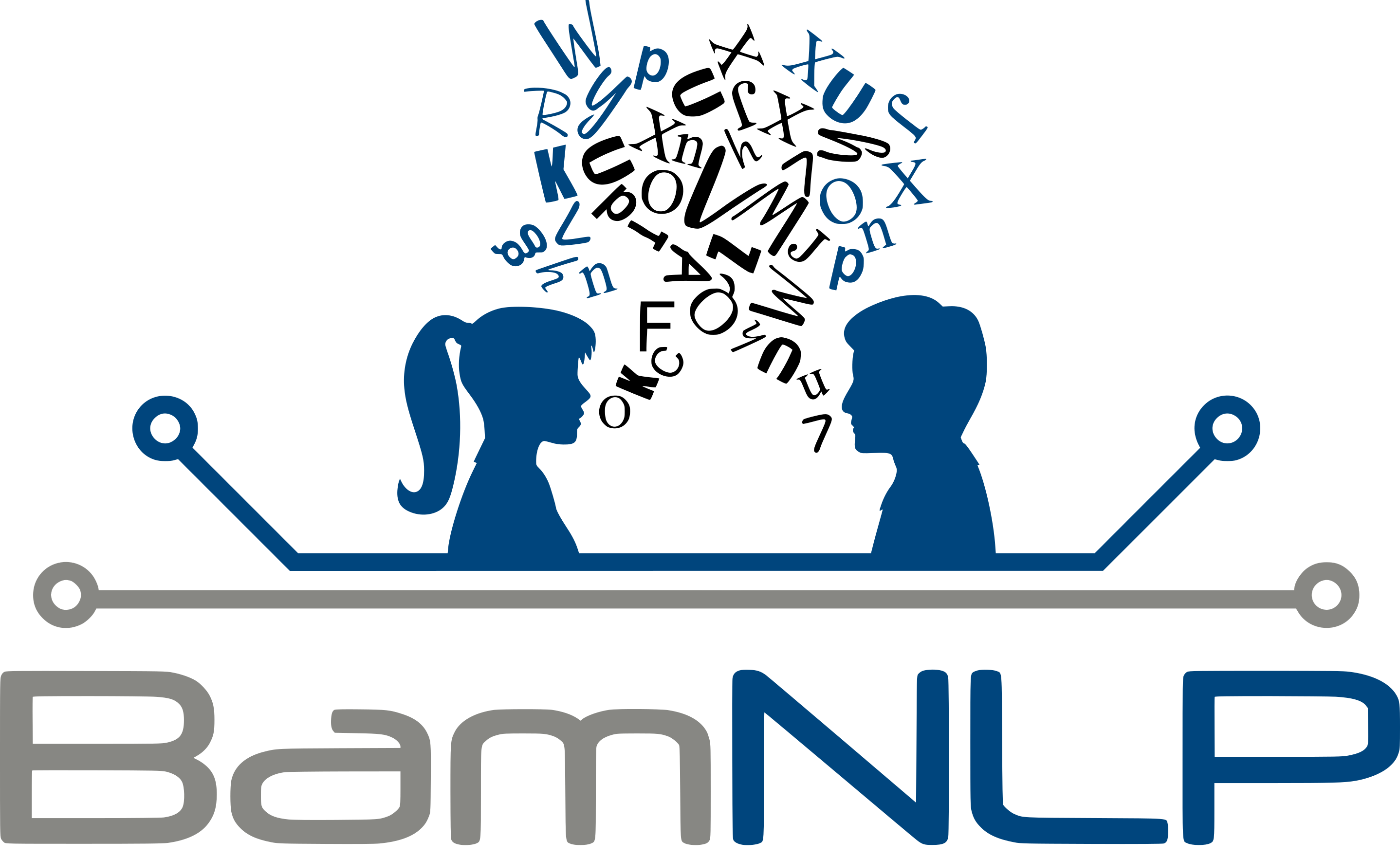Studies
We offer courses covering various topics in the field of computational linguistics and natural language processing.
In the summer semester, we usually offer Information Retrieval and Text Mining (IRTM). In this lecture, we cover the basics – how to represent documents as data, how to compare them, how to find them with queries or otherwise, how to organize them into predefined categories, and how to group them automatically. We discuss traditional machine learning methods and traditional representation methods.
In the winter semester, we offer Natural Language Understanding/Algorithmisches Sprachverstehen(NLU). In this lecture we discuss the representation of the meaning of words and sentences with lexical and distributive semantics. We will then talk about various tasks in NLU, including information extraction, named entity recognition, relation detection, entity linking, emotion and sentiment analysis, semantic role labeling, and natural language inference. From a methodological point of view, we will deal with traditional machine learning and rule-based methods and give hints on modern approaches.
IRTM and NLU together lay a foundation for Natural Language Processing. Both courses are part of the Bachelor's program and are complemented by Bachelor's seminars and Bachelor's projects, which take place irregularly.
In the Master's program, we offer in-depth courses. From a methodological point of view, these are Deep Learning for NLP and Probabilistic Graphical Models for NLP. In Societal Impact of NLP, we discuss the effects of such methods on society. These courses are complemented by other lectures, seminars and projects that take place at irregular intervals and convey the state of the art in research and technology, especially on the topics that we also represent and advance in research.
Each of these courses can be taken separately and independently, but we recommend taking them all if you wish to specialize in NLP. Note that other chairs at the university also offer related and relevant topics on machine/deep learning or dialog systems and language generation. Note that for some degree programs we also offer a "collection" module, in which several smaller lectures and seminars can be combined into one larger module (for the case you want to take more seminars than usually done).
If you have specific ideas that you would like to learn more about, please feel free to contact us.
